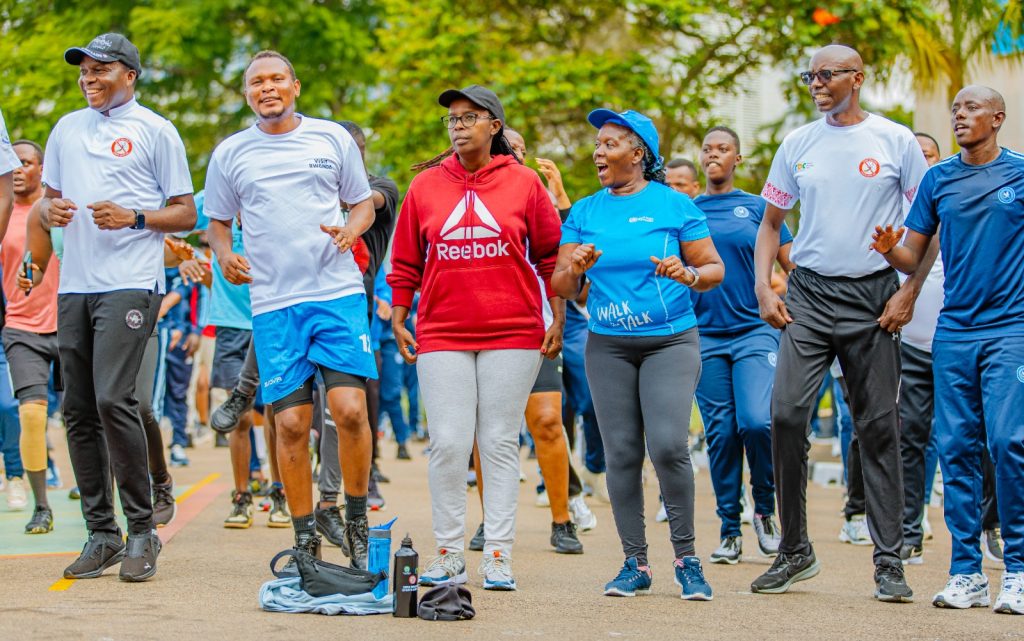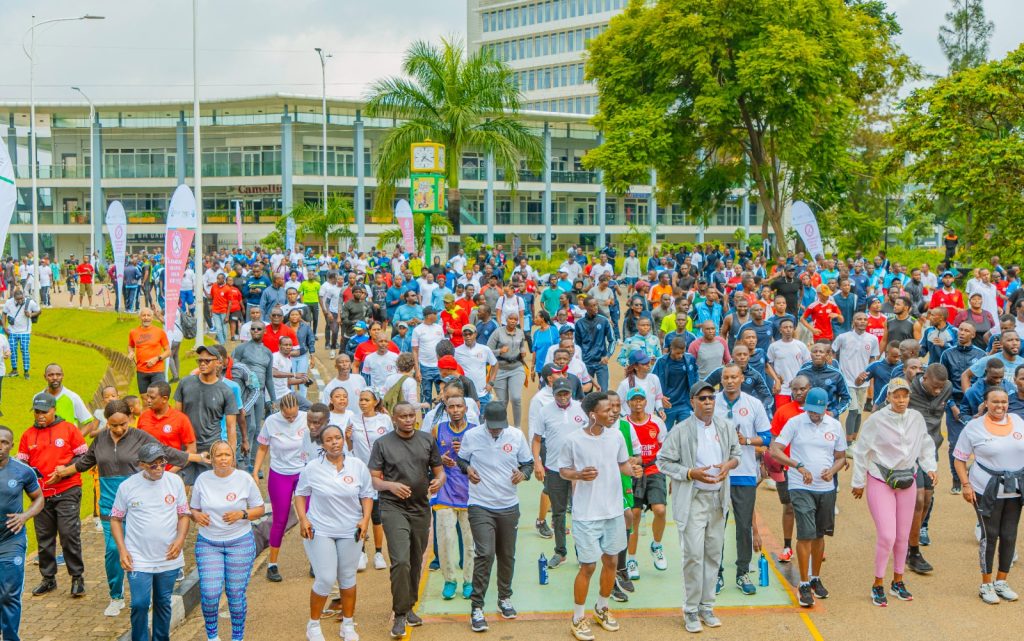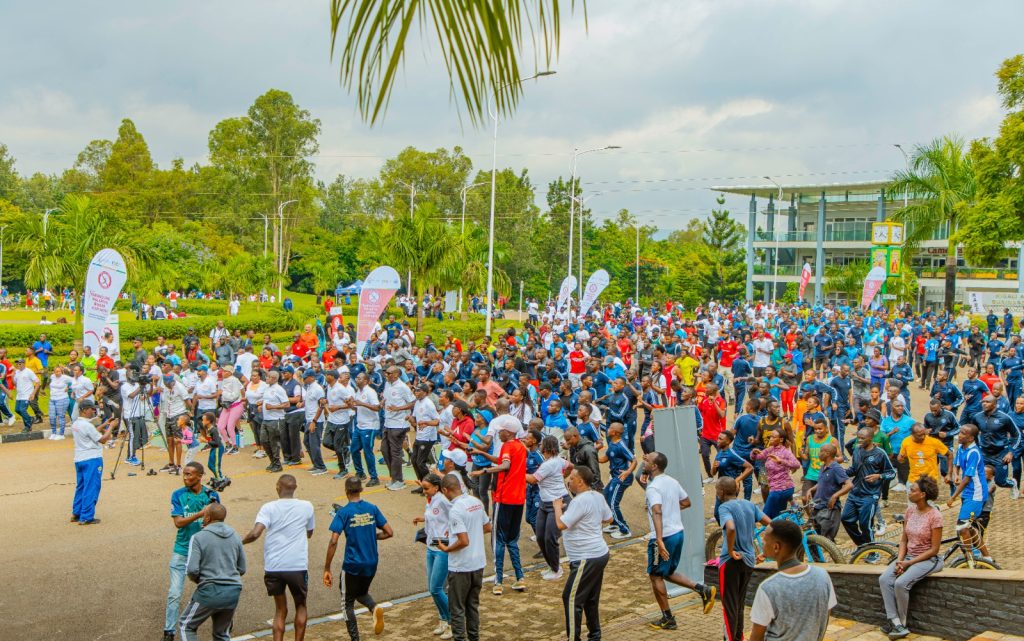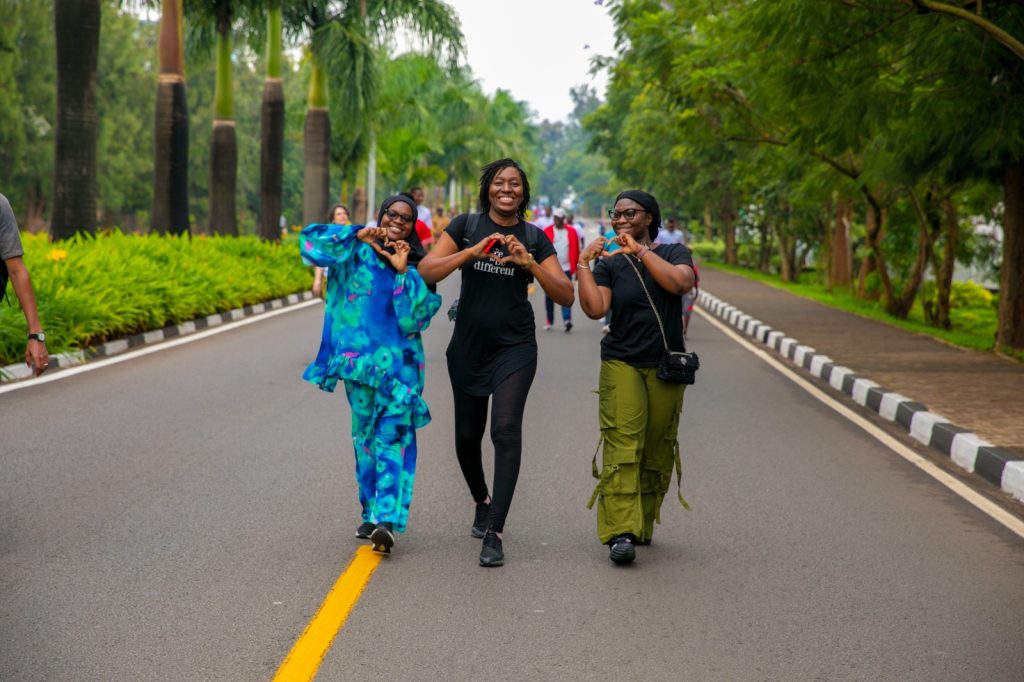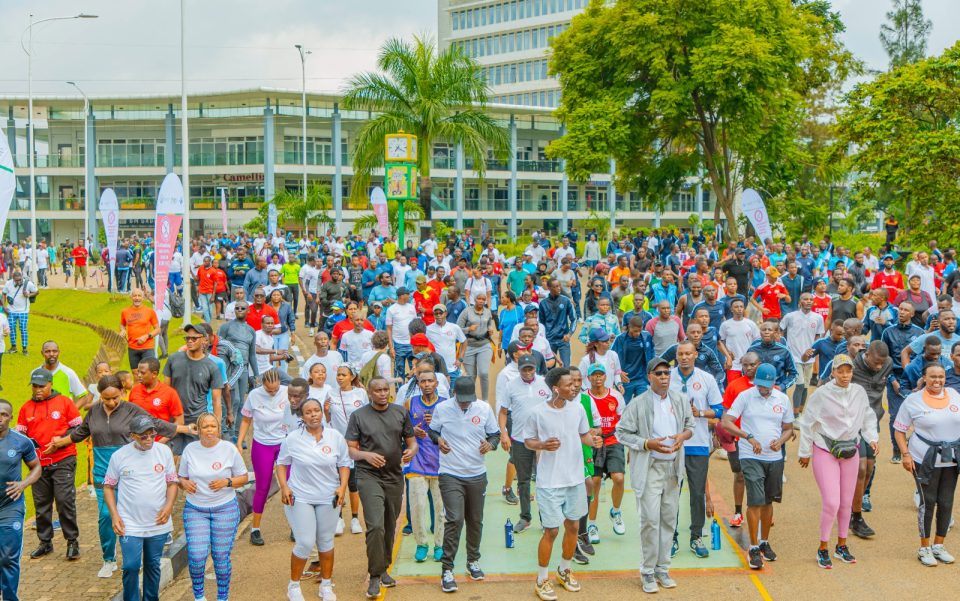Delegates from the Multilateral Initiative on Malaria (MIM Society), government officials, and health leaders, on Sunday, April 21, joined Kigali residents during Kigali Car Free Day.
The special event, “Africa Walks against Malaria”, marked the start of the MIM Society 8th Pan-African Malaria Conference (PAMC) taking place in Kigali from April 21-27. Aligned with World Malaria Day (WMD), observed annually on 25 April worldwide.
Rwanda has been chosen to host the conference due it’s progress in fighting malaria.
ALSO READ: All boarding students in Rwanda equipped with mosquito nets to fight malaria
Attracting over 1,400 delegates, the conference will provide a platform for researchers, policymakers, and stakeholders to share experiences and insights on addressing malaria as a critical public health concern and more.
Kigali Car Free Day has, over the years, grown beyond group workouts, with activities like group tennis and ping pong, children’s mobile entertainment facilities, traditional dance, and blood donations added to the list.
Participants underwent screenings for non-communicable diseases like hypertension, high blood sugar, eye disorders, and more. Alongside the health checks, a blood donation campaign was also conducted.
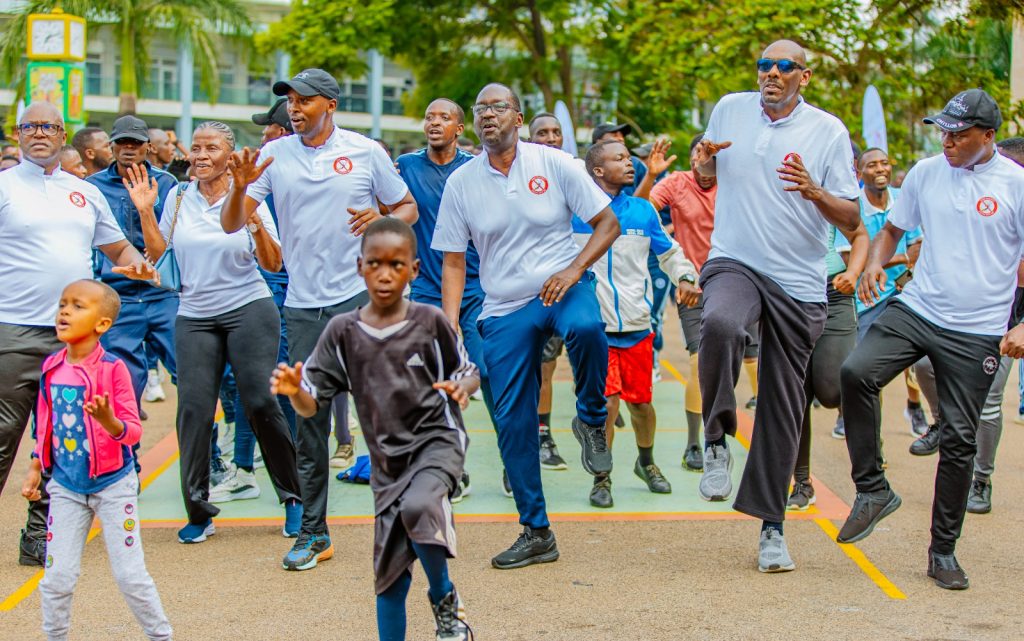
Dr Sabin Nsanzimana, the Minister of Health, said: “We have different strategies in place to help fight malaria, like the use of drones in identifying places suitable for mosquitoes growth and spray them. This has in Gasabo district alone reduced malaria cases on a 80% rate in three months.”
Nsanzimana also commended community healthy workers for their work in screening and treating malaria, where 50% of all recorded cases have been treated by CHWs in 2023.
” It’s a collective effort to get to zero malaria because mosquitoes have no boundaries. You may do well and find your neighbors having other priorities. This is why we still record many cases in Gisagara district, cases from Burundi. This conference will also look into how we can work hand in hand as a continent to get there.”, Nsanzimana added.
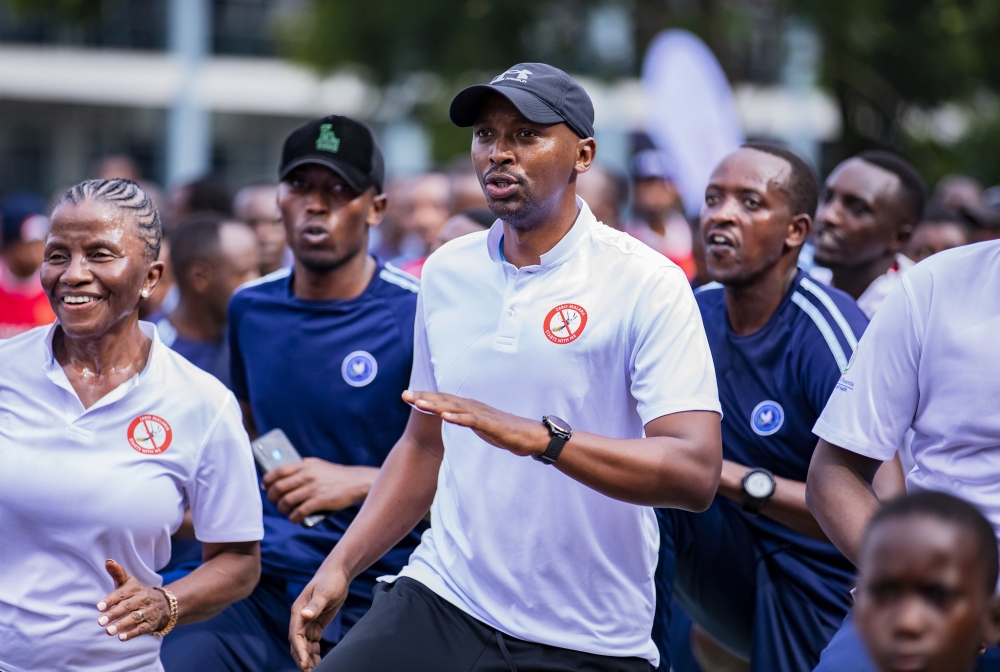
Nsanzimana revealed that the current number of Rwandans afflicted by malaria has notably dropped to between 500,000 to 600,000 annually, in contrast to 5 to 6 million in the previous five years, and emphasised the connection between sports and combating malaria, highlighting how engaging in sports acts as a natural vaccine against malaria and other diseases.
He said that individuals who regularly exercise tend to have stronger immune systems, making them more resistant to malaria and other non-communicable diseases such as cancer, diabetes, heart attacks, and others.
“Therefore, we invited our guests to showcase our city’s cleanliness and more. Hygiene and sanitation are powerful tools in combating malaria. We encourage everyone to make it a habit,” he said.
